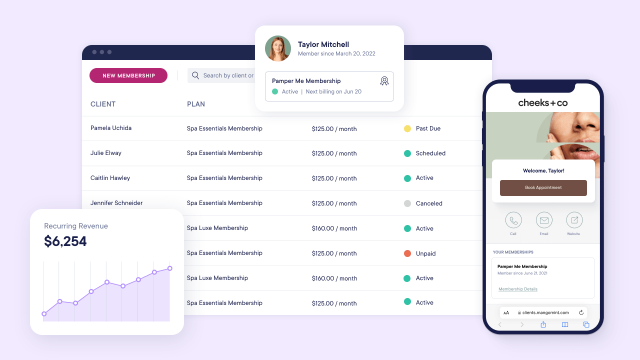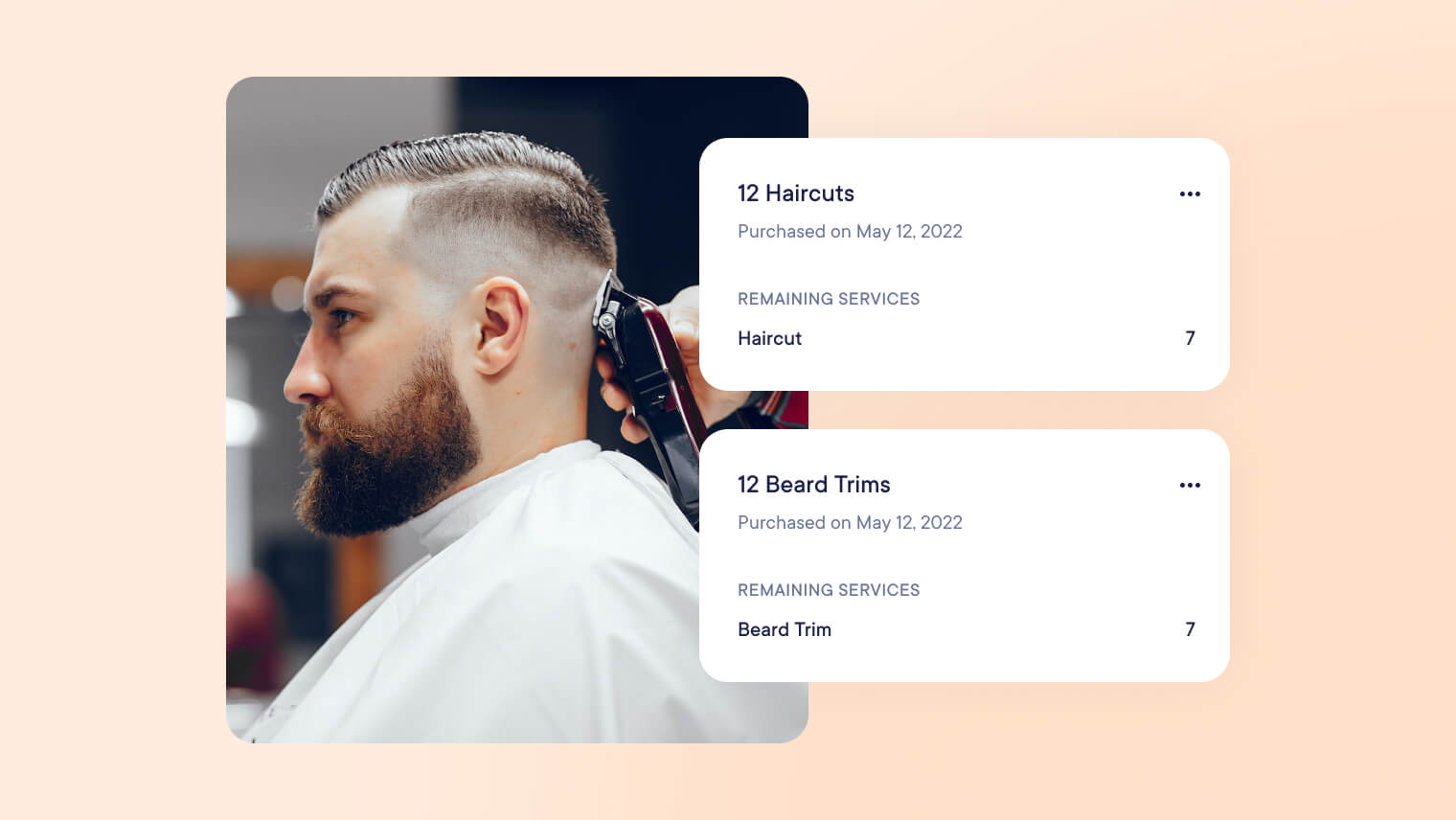
A guide to salon package agreements
Explore how the fine print on your salon's package sales can save you time and headaches in payment disputes.

Content Marketing Manager
Salon package sales carry a sense of commitment. The client knowingly pre-pays for multiple services, often in exchange for a discount. This straightforward arrangement can give salon and spa owners a false sense of protection against payment disputes.
In reality, disputes are viable for these transactions, even after the package has been partially redeemed. Thankfully, package agreements can help prevent and win these disputes.
Let’s take a closer look at package agreements, why they are so important, and how you can create one for your salon or spa. Preview and download our template here, and fill it out as you read through the considerations in this post.
The importance of salon package agreements
Before we dive in, it is essential to reiterate why your business needs a package agreement. If you have experienced a payment dispute, you know the toll it can take on a small business. Your salon and its employees face lost income, wasted product expenses, and opportunity costs.
A package dispute offers this same result but with exponentially greater risks, as there is a chance your client redeems multiple services before filing the dispute.
As mentioned above, package sales carry a built-in sense of commitment. Many business owners believe adding more paperwork can waste time or deter clients from buying. However, these credit card disputes become almost impossible to win without a formal agreement.
So, let’s explore five considerations for building your package agreement. You can also view membership agreement templates and insights here.

1) What is included in the package?
Naturally, the most foundational element of your package agreement will be the details about your packages. What products and services are included in this transaction? The more information you include, the better.
For example, instead of saying “12 laser hair removal treatments,” consider saying something like, “12 laser hair removal treatments for one (1) small treatment area. Our small treatment areas are limited to the underarms, lower facial hair (chin and lip), nape of the neck, or bikini lines.” Apply this same level of specificity to each of your package tiers and options.

Sell memberships and packages
Learn how Mangomint can help seamlessly sell your memberships and packages with intuitive software features.
Explore membership features2) Any disclaimers, considerations, or exclusions
In addition to detailing all of the inclusions of your package, it is helpful to explain any exclusions or disclaimers. The exact nature of your insights will depend on your services and business types. Some examples include:
Exclusions: If your packages are limited to specific providers, products, or appointment types, make this clear in your agreement.
Extra charges: In some cases, you may want to allow clients to redeem their package credit for an elevated service at an additional price. For example, “These credits can be redeemed for any standard massage. Hot stone massages can be selected for an extra $15, paid at the time of checkout.“
Cancellation policy: Reiterate your cancellation policy and how it applies to package appointments.
Medical disclaimer: Include any standard medical disclaimers. For example, “These services are not intended to replace professional medical care. Treatments in the business may expose you to allergens and irritants. Please consult your physician for insight.”
Results may vary: Include any disclaimers about expected service results. For example, “While the average lash lift lasts 4-6 weeks, the exact nature of your results can depend on your lash thickness, length, and general upkeep. No results are guaranteed.”
3) Payment expectations
Payments for certain packages may come with questions from your clients. Try to anticipate these questions and include the answers in your agreement, such as:
How much does the package cost?
Are taxes and fees included in this price?
What are your tipping policies or expectations for clients when redeeming a package appointment?
Will you require an active card saved on file?
These details will all need to be covered in your package agreement. Again, it is vital you check with local laws to ensure you remain compliant when completing a sale.

Learn about flexible payment options
Mangomint's payment options are tailored to support every business type, from traditional salons to booth rental & hybrid models.
Explore Mangomint Pay4) Redemption Period
How long do clients have to redeem the services included in the package?
The CARD Act and other local laws may regulate the expiration of services, credits, and gift cards. The applicable laws vary by region, so it is essential to have a lawyer in your area review all legal documents for your business.
Including an expiration timeline in your package name may help solidify the redemption period. For example, instead of naming your package “5 Kids’ Cuts,” consider something like “5 Kids’ Cuts for the 2024-25 School Year.”
As explained by legal experts, including the dollar amount in your package name could have the opposite effect. For example, a name like “$50 Kids’ School Cut Pass” could imply the package is redeemable for a full $50 value without limitations.
Hint: Most businesses focus only on client expectations in their agreements. However, including reasonable redemption expectations from your salon can make the document more robust. For example, if you are frequently booked and a client claims trouble redeeming their packages, reviewers will likely find your business at fault in any disputes.
Instead, include promises and expectations from your business, such as, “Package appointments will be made available during our normal business hours. Certain appointment days and times cannot be guaranteed with less than two weeks’ notice. However, [BUSINESS NAME] will make reasonable efforts to accommodate your preferred appointment day and time with more than two weeks’ notice. It is the client’s responsibility to schedule these appointments in advance to redeem all credits within the package window.”
5) Return, exchange, and transfer policy
Package sales are implied as final sales, but this won’t stop clients from requesting refunds. These requests can be especially tricky when packages are partially redeemed. Some potential return and refund policy setups include:
Strict no-refund policy.
Partial refund to the original payment method (based on how many services in the packages have been redeemed).
Partial refund to a gift card to your business.
Transfer the package’s remaining services to a friend or family member.
Extend the package’s redemption window. You might offer this as an option to clients who move out of state to receive treatments when visiting friends or family members in town. For example, “In the case that the member cannot redeem the package within the window provided, [BUSINESS] may extend this period by no more than six (6) months.”
Exchange remaining services for those of an equal or lesser value. This option may be helpful for clients who cannot redeem certain credits for medical reasons.
No matter your refund policy, it is vital to clearly state it in your agreement and present it to your client during the package sale.
How to protect your package sales
Now that you have your agreement ready to go, how do you enforce it? In your online booking, create a mandatory purchase field that says, “I have read, understood, and agree to the package terms and conditions.” Click here for an example checkout flow.
You can also have your client sign and date the package agreement using your software’s integrated forms feature.
Try Mangomint for free
See Mangomint in action instantly with pre-populated sample data. No credit card required. Free for 21 days.
Try it nowSell memberships and packages with Mangomint
Mangomint can help your salon or spa seamlessly sell packages and memberships. Explore these features alongside our built-in email marketing, payroll processing, client management, online booking, and other tools to understand why Mangomint is the best-rated salon software system. We encourage you to start your free trial or schedule a live demo to get started today.


